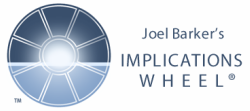Workplace Substance Abuse - AI
This exploration contains 18 completed "arcs," with over 600 specific implications. It was completed with support from ChatGPT, specifically to examine possible implications from different "points-of view."
Details of the Center
This "center" was created with initial input from ChatGPT plus expert input on substance abuse, burnout, and human resources.
Background:
Substance Abuse in the Workplace:
Economic Impact: According to the National Council on Alcoholism and Drug Dependence (NCADD), substance abuse costs the U.S. over $740 billion annually in lost workplace productivity, healthcare expenses, and crime-related costs.
Workplace Accidents: NCADD also reported that workers with substance abuse problems are 3.5 times more likely to be involved in workplace accidents.
Job Performance: Substance-abusing employees function at about 67% of their capability, leading to decreased overall productivity, according to the U.S. Department of Labor.
Absenteeism: Substance abusers are 2.5 times more likely to be absent eight or more days a year.
Workers' Compensation: According to NCADD, employees who abuse drugs are five times more likely to file a workers' compensation claim.
Drug Testing:
Widespread Testing: According to a survey by the Society for Human Resource Management (SHRM), approximately 57% of employers conduct drug tests on all job candidates, while only 29% do not conduct drug tests on any job candidates.
Post-Accident Testing: The same SHRM survey found that 36% of employers conduct post-accident drug tests.
Random Testing: Approximately 35% of employers have random drug testing policies, as per SHRM data.
Marijuana Policies: With the increasing legalization of recreational marijuana across various U.S. states, employers face challenges in policy-setting. Some companies have chosen to exclude marijuana from their drug testing panel, while others, especially those regulated by federal laws or those with safety-sensitive roles, still test for it.
Impact on Job Seekers: A survey by Quest Diagnostics, one of the leading drug testing providers, showed that positive drug test results reached a 14-year high in 2018. This rise can deter some job seekers from applying to roles that require testing.
Types of Drugs: Opioids, marijuana, and amphetamines are among the most commonly detected substances in workplace drug tests. However, the prevalence can vary depending on the region, industry, and specific workplace.
www.hr-tracks.com
